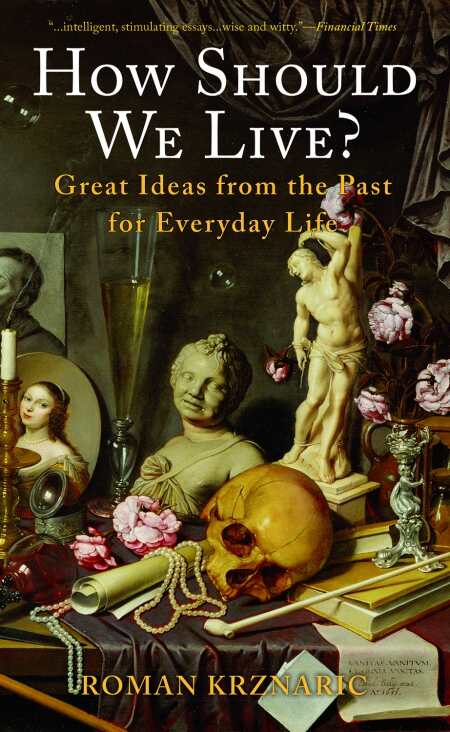How Should We Live?
Great Ideas from the Past for Everyday Life
Roman Krznaric redefines the self-help book with thoughtful historical analysis of how life should be lived.
The title of Roman Krznaric’s well-written and thoughtful book, How Should We Live?, is slightly misleading. It suggests that the book is just another self-help manual, but in reality, the book provides proposals for helping the self. There is a difference. Self-help books usually exhort a change in behavior, while Krznaric suggests fundamental changes in how a person lives.
Krznaric has selected twelve major issues of life and examines each, both from a historical viewpoint and within a contemporary culture. His mastery of knowledge of ancient cultures, both Western and non-Western, provides many cases to bolster his arguments. In the chapter on empathy, his analysis of the abolition of the British slave trade in the latter half of the 18th century provides a fresh look at what is usually considered an individual virtue rather than a communal one—namely, empathy for another.
In addition to drawing from history, Krznaric delves into the meanings of ordinary words. In the essay on family, the discussion of the similar etymology of the words “housewife” and “husband” indicates that the idea of “househusband” and the switching of contemporary roles of breadwinners from man to woman isn’t really all that new an idea.
Roman Krznaric is a noted British philosopher but rather unknown in the United States, so it is understandable that many historical examples are from the realm of the British Empire. When he delves into American history, he seems to avoid retelling the stories of the famous and focuses instead on rather obscure personalities. The conversion of Claiborne Paul Ellis, a former Ku Klux Klan member who rose to its administration, to a civil-rights activist collaborating with Ann Atwater is especially inspiring.
Whether or not Krznaric’s suggestions for living the better life will be heeded is uncertain. Many suggestions, particularly a reexamination of our consumer culture, are laudable, while some suggestions seem impractical and ephemeral, such as covering digital displays of time or not wearing a watch.
Krznaric’s prose is brisk and readable despite the weightiness of some of the subject matter: the six forms of love for the ancient Greeks in the essay on love, and the chronology of the rise of the clock in the essay on time. Readers may nod in agreement with many of Krznaric’s suggestions, but it may be quixotic to bet on their implementation.
Reviewed by
Thomas H. Brennan
Disclosure: This article is not an endorsement, but a review. The publisher of this book provided free copies of the book to have their book reviewed by a professional reviewer. No fee was paid by the publisher for this review. Foreword Reviews only recommends books that we love. Foreword Magazine, Inc. is disclosing this in accordance with the Federal Trade Commission’s 16 CFR, Part 255.

